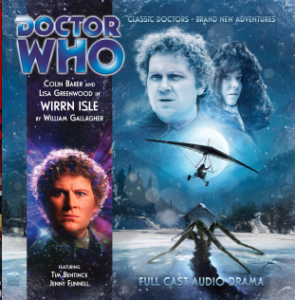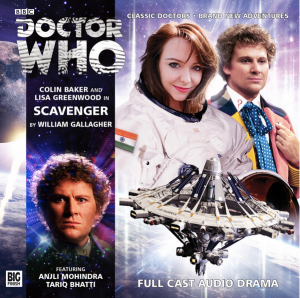I thought that was such a clever title there: The Evil I. Things happened this week that have been making me think a lot about first-person writing and how really no matter what I’m working on, I am kind-of writing for myself and absolutely, specifically writing to you. You can’t tell this since I say ‘I’ an awful lot but I don’t like it. I like writing the word ‘you’, I don’t like writing the word ‘I’.
Before you check, I’ve now written ‘I’ nine times and ‘me’ once. Please bear with me on this for a minute.
Given all this, the mantra has been that writing in the first-person is bad, hence calling the word ‘I’ evil.
The Evil I.
I thought that was so clever. Then I type it here and all I can think of is: when’s The Evil 2 coming out?
When I solely wrote journalism, first person was out because as a journalist I do not matter. I am not the story. As a teenager I used to read The New York Times at Birmingham Central Library but eventually stopped because its style of journalism became featuring the journalist more. I just remember reading one interview in the paper where a third of the article was about the journalist getting ready to meet whoever he or she was interviewing. I seem to remember a paragraph about the orange juice served at the hotel.
That makes me shake. And it makes me tremendously pleased to tell you, if you don’t happen to know already, that the Times is far better now. You might question certain employment decisions (a prominent editor was just kicked out) but the writing is such that I am back reading it. I read a lot of news online through RSS and since that brings websites’ stories right to me, I doubt there’s been a day in the last five years that I haven’t read something on The New York Times.
But no first person in journalism. That’s clearly not a universal rule but it was for me.
I have many and specific responsibilities to you as a journalist, but the core job is to get the news right and to get the news to you. I want to write well, I want to tell you things you don’t know yet are then glad you do or in some way find it useful. But if you can tell without looking at the byline that I wrote a particular news story, I reckon I failed.
It took me a long time to understand that drama is different.
Alan Plater once said that poets write about themselves, dramatists write about everybody else. He knew that was a broad generalisation and I knew he was right. I just also thought that I belonged entirely on the drama side. I’m not interested in me, I’m interested in you. And I can’t write poetry or, say, song lyrics. Just can’t. (Though – this came up in a workshop I did yesterday – I’ve realised that if you asked me who my writing heroes are, the first names that come to me are Suzanne Vega, Dar Williams and Emily Dickinson. All poets.)
(There’s also Alan. And Patricia Highsmith. Paul Auster. Sarah Dunant. Carrie Fisher. Anton Chekhov. But let’s not go there.)
The short conclusion I’ve come to with drama is that the deeper you reach within yourself, the more people you actually reach.
I like that very much, except for how bleedin’ hard it is to do and except for how I’m not interested in reaching more people. One of my favourite jobs ever was writing a thing called On This Day for Radio Times. It was a TV history piece and there was a wee dollop of it in every day’s listings page. I can’t remember the numbers now but I know that at the time, research was saying that about 1.1 million copies of Radio Times were sold each week and that each copy was read on average by three people. So three million could’ve read my pieces each week.
Maybe it’s just that I haven’t the imagination to comprehend that number but I write for myself and I write to one person. It’s best when it’s you but I feel I’m putting some pressure on you now. Let’s not dwell on how you somehow got lumbered with reading everything I ever write and instead look at why I’m thinking about this so much today.
I do think about it a huge amount and very often, most usually whenever the topic of radio comes up. I caught Steve Wright on BBC Radio 2 while driving the other day and I switched him off immediately. It’s very unfair of me, especially since I didn’t give his show time for me to know what it was about, but Steve Wright equals the zoo format to me. That’s the type of radio where there is a posse in the studio, a whole group sort-of co-presenting. It’s what he always did in the 1990s on BBC Radio 1 with “Steve Wright in the Afternoon”, it’s one of the many things I adored about On The Hour: how it mocked him and the format with “Wayne Carr in the Afternoon“. You have such an innocent face. You might need to say that title aloud right about now.
Sure, there was the inanity and the banality of the format but also just the sense I would have that everybody on the show was having this fantastic time and I was over at the window saying hello, have you forgotten me?
This isn’t some ego thing. There is no reason why the posse in a zoo gang – tell me you don’t think that’s a great title for an action movie – where was I? Right, thanks. There is no reason why the posse in a zoo format radio show should have anything for me, no reason for them to care if I listen. But there’s also no reason for me to listen. So I don’t.
That’s not why this is on my mind today. This is why. I’ve just read The Paris Review’s collated quotes from John Steinbeck, which include:
It is usual that the moment you write for publication—I mean one of course—one stiffens in exactly the same way one does when one is being photographed. The simplest way to overcome this is to write it to someone, like me. Write it as a letter aimed at one person. This removes the vague terror of addressing the large and faceless audience and it also, you will find, will give a sense of freedom and a lack of self-consciousness.
Forget your generalized audience. In the first place, the nameless, faceless audience will scare you to death and in the second place, unlike the theater, it doesn’t exist. In writing, your audience is one single reader. I have found that sometimes it helps to pick out one person—a real person you know, or an imagined person and write to that one.
Recently a couple of companies have approached me about running advertising blog entries for them. This ain’t gonna happen.
But I was amused by the kind of terms and conditions I would have to abide by if I were to take money from these advertising firms. The key one was to do with what they called website traffic and hit rates and I translated as “number of readers”. It was something about reporting the figures to them and while politely declining the offer, I did tell them that they were welcome to know how many readers I have on this blog.
One.

